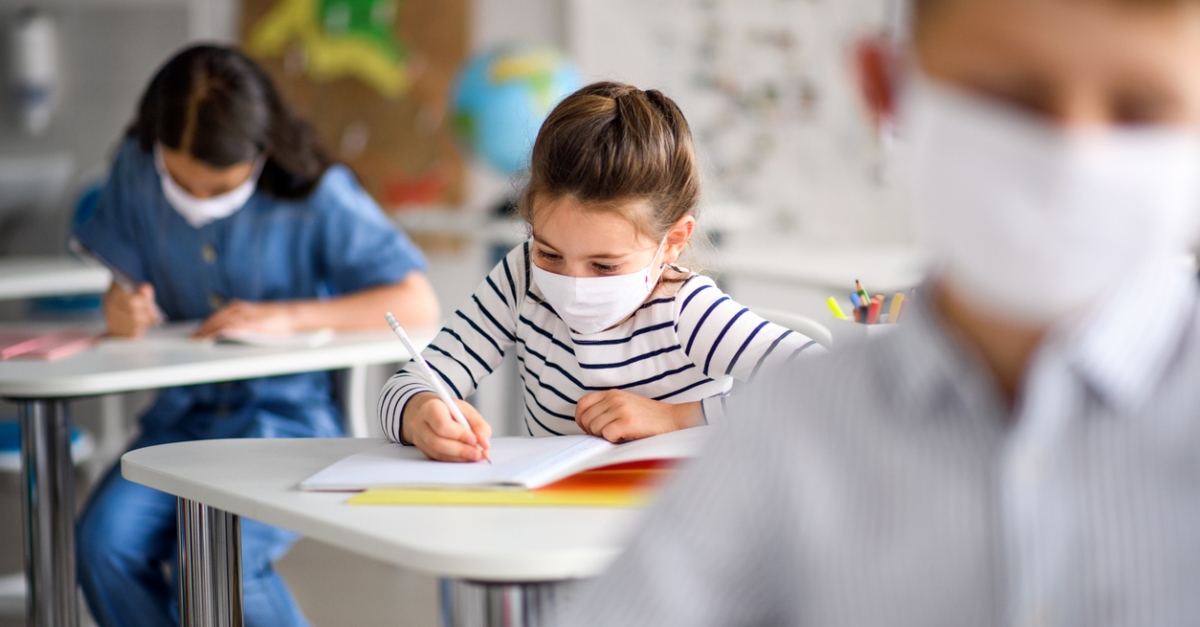
COVID-19 has upended the lives of so many people in ways that are easy to measure but harder to understand. The numbers of people who have contracted the illness or died from it may start to seem meaningless after hearing it day after day. Those aren't numbers, however; they are lives. These lives have been tragically lost, leaving gaping holes in families and communities.
As many communities scramble to support their struggling populations, a lot of parents have had to find ways to make things work. This is especially true for parents who are essential workers. They have turned to day care centers and after-school programs for help.
Many after-school programs have adapted to the changing world around us to help those who need it most. They aren't just a place for people to leave their kids for a while. For many families, after-school programs help parents cope with school closures, job losses, food insecurity, and more.
While helping communities, these centers are also facing their own problems. They have lower enrollment and income, more standards to uphold, and a smaller staff to do it all with, in many cases. An online survey conducted by Edge Research for the Afterschool Alliance questioned 914 program providers between May 28 and June 30. These providers were located in 47 states and the District of Columbia.
Since mid-March, figuring out child care has been tough for parents. School closures, essential jobs, and other circumstances have left families looking for help. An online survey conducted by Edge Research for the Afterschool Alliance questioned 914 program providers located in 47 states and the District of Columbia between May 28 and June 30.
The "Afterschool in the Time of COVID-19" survey found that the pandemic has created and deepened existing hardships for these programs. While they are working hard to serve their communities during these difficult times, 84% of programs report that they are concerned they will not be able to provide services in the fall.
Many of these programs are fearing they will have to close their doors for good. Furthermore, 88% of the after-school centers reported that new costs to adhere to safety regulations, as well as other costs driven by the virus, are making it cost-prohibitive to offer programming. Of those programs, 55% felt unsure that they'd seen the worst of things or if it was yet to come.
You might think these programs are operating at a lesser capacity because of COVID, but they do more than just provide a place for people's children to stay while the parents work or look for work. Over 70% of the after-school programs reported they were serving their communities in some capacity.
Of those programs, the majority were serving communities that were made up of 75% or more low-income students. These programs are serving students remotely, by serving or delivering meals or other resources and by connecting families with community resources.
After-school providers are also concerned about the students they're serving, as well as the ones they aren't. Those serving remotely are worried about what's being lost in the digital setting. Those who are serving the children of essential workers, about 18% of those surveyed, worry for the kids that they would usually have but won't get back until things open up again.
More than half of these programs are concerned about the social and educational losses these students are experiencing. They are also worried about how many are being impacted by food insecurity.
Over 75% of these programs are worried they will lose touch with some students for good. There's also the concern about staff losses. About 45% of respondents reported that they have laid off or furloughed staff, and 31% have reduced hours of staff. Another 12% reported that while they have not laid off or furloughed staff, they anticipate doing so in the future. Of those who have laid off or furloughed staff, two-thirds say that 50% or more of their staff have been impacted.
It's become apparent that after-school programs will need help to continue the important work they're doing. Programs relying only on parent fees were almost twice as likely to be completely closed than programs overall. They were more than 3.5 times less likely to offer virtual programming as well.
"In many ways, out-of-school-time programs are uniquely positioned to help during the health and economic crises the pandemic has brought, but this survey shows that many programs are struggling themselves," noted Jodi Grant, executive director of the Afterschool Alliance.
"Programs are stretching and scrambling to help students and families who are hurting, including many who are low-income, by delivering meals and enrichment kits, providing innovative virtual learning, checking in with children and families, developing constructive actions for students who want to advance racial justice to take, caring for the children of essential workers and first responders, and much more. At the same time, programs have uncertain budgets, unclear mandates for the school year, and resources that are far from adequate if they are to help solve the enormous problems their communities face."
Despite the many struggles they're facing, the majority of these programs are balancing their fears and concerns with optimism. About 61% of them were working in conjunction with local officials on plans to reopen in the fall. They've proven that after-school care is not a luxury but an essential need for so many in our country.
Whatever lies ahead, the importance of these programs must be underscored, not only because it is often thankless work, but because the public needs to understand how crucial local and federal funding is to continuing these community programs.
"It's clear that out-of-school-time programs are going to have expanded mandates and additional challenges this year," Jodi noted. "They will need to be adequately funded to provide the help families and communities need."







